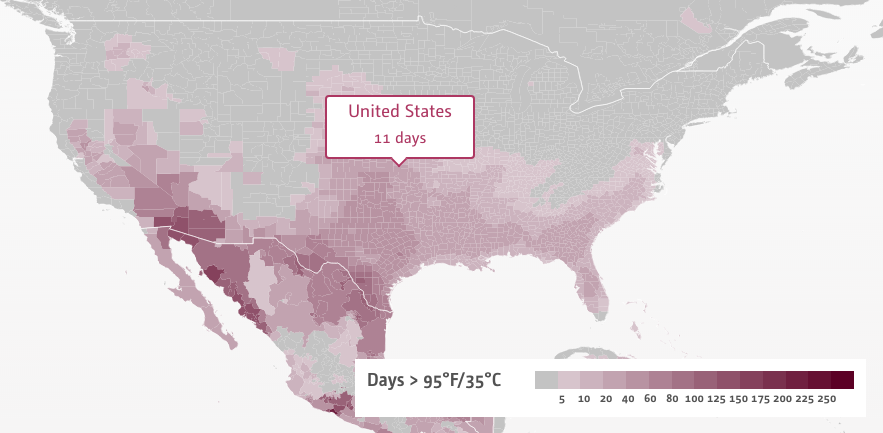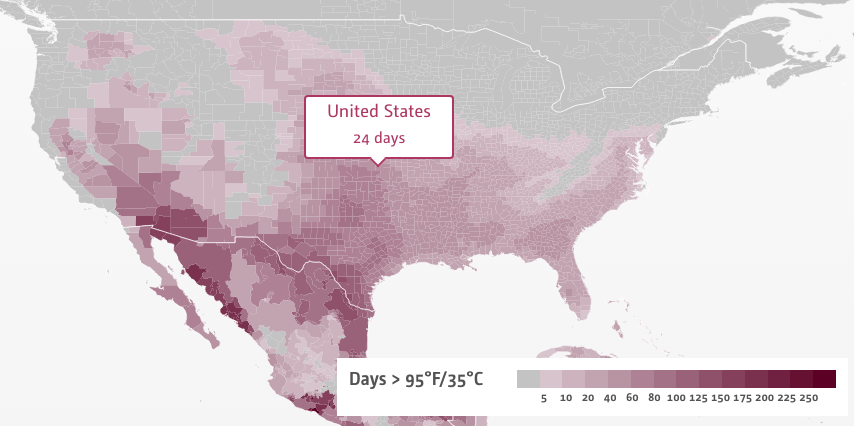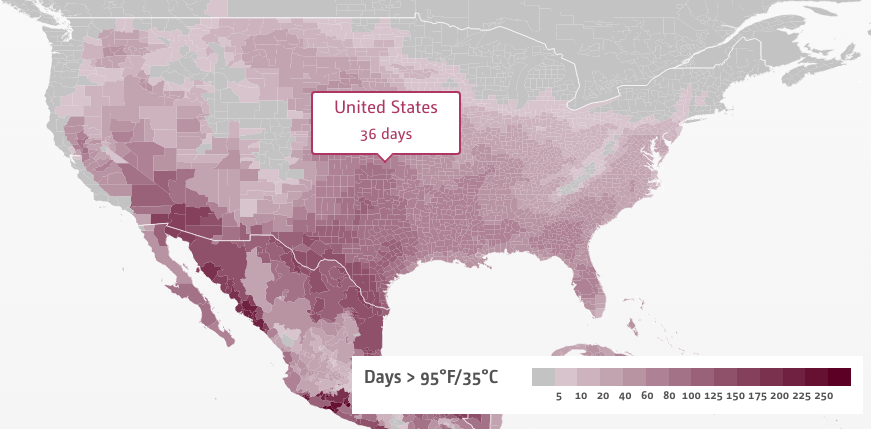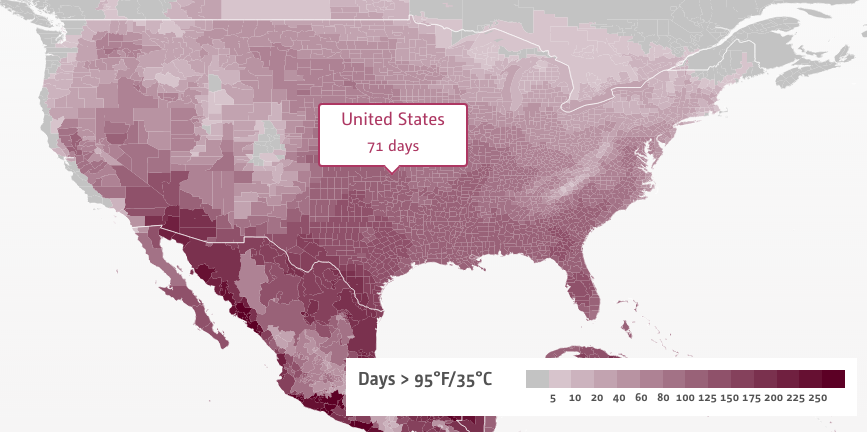How Extreme Weather Will Worsen Through 2099

By:
How hot is the planet going to get if we don't take swift and dramatic action to curb greenhouse gas emissions? Really hot, according to a new analysis from the Climate Impact Lab.
While the effects of climate change are already being felt—with record-high temperatures, melting ice caps, and rising ocean levels—the long-term effects should also give us pause. One way to evaluate the impact of global warming is by looking at the projected frequency of extreme weather over the course of the century.
Climate scientists have linked rising temperatures to emissions of heat-trapping gases such as carbon dioxide and methane into the atmosphere. According to the Environmental Protection Agency, these gases "from human activities are the most significant driver of observed climate change since the mid-twentieth century."
Using data from NASA climate models, the Climate Impact Lab released maps that estimate how frequently each country will experience days where temperatures exceed 95 degrees Fahrenheit if greenhouse gas emissions continue to rise through 2100.
For the purposes of this article, we'll focus on the United States. First consider the historic yearly average of days where temperatures exceed 95 days in the U.S., from 1986 to 2005: 11 days.
 Climate Impact Lab - impactlab.org
Climate Impact Lab - impactlab.org
But what about the next 20 years, from 2020 to 2039? The average will be 24 days.
 Climate Impact Lab - impactlab.org
Climate Impact Lab - impactlab.org
From 2040-2059?
 Climate Impact Lab - impactlab.org
Climate Impact Lab - impactlab.org
And by the end of the century, from 2080 to 2099, the average will be 71 days—a 545 percent increase from the historic average.
 Climate Impact Lab - impactlab.org
Climate Impact Lab - impactlab.org
Rising temperatures doesn't just mean physical discomfort and a higher electricity bill, though.
More days over 95 degrees means that plant life will be more likely to wither and die and people prone to heat-related illnesses will be at greater risk, as The New York Times reported.
The elderly and young are most at risk of experiencing heat stroke or dying from heat-related causes. About 8,100 Americans died from the heat from 1999 to 2010, according to the Centers for Disease Control and Prevention (CDC). And as global temperatures continue to rise, combined with increased humidity, climate scientists are cautioning that this trend will be exacerbated.
The trend could be impacting us sooner rather than later.
One study that looked at the impact of global warming on the rate of heat-related deaths, published in the journal Nature Climate Change in 2013, found that these deaths would increase by 20 percent in the 2020s. And seventy years later, heat-related deaths could increase by 90 percent or more, researchers at Columbia University estimated.
"This serves as a reminder that heat events are one of the greatest hazards faced by urban populations around the globe," Radley Horton, co-author of the study, said in a press release.
